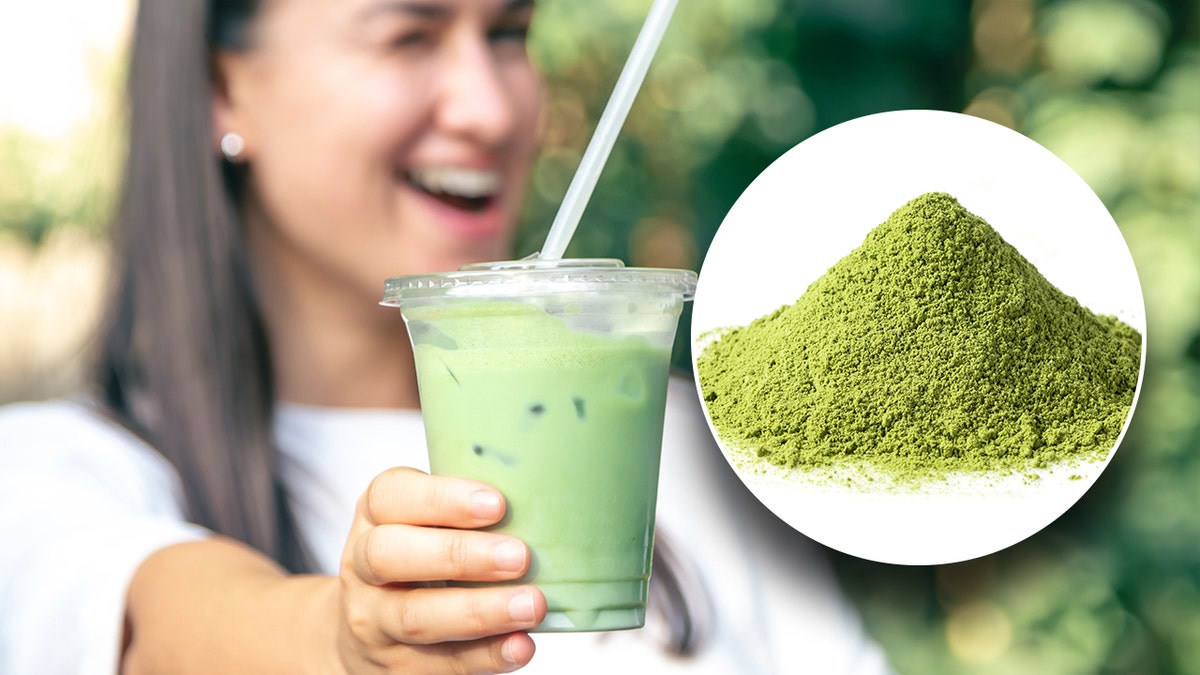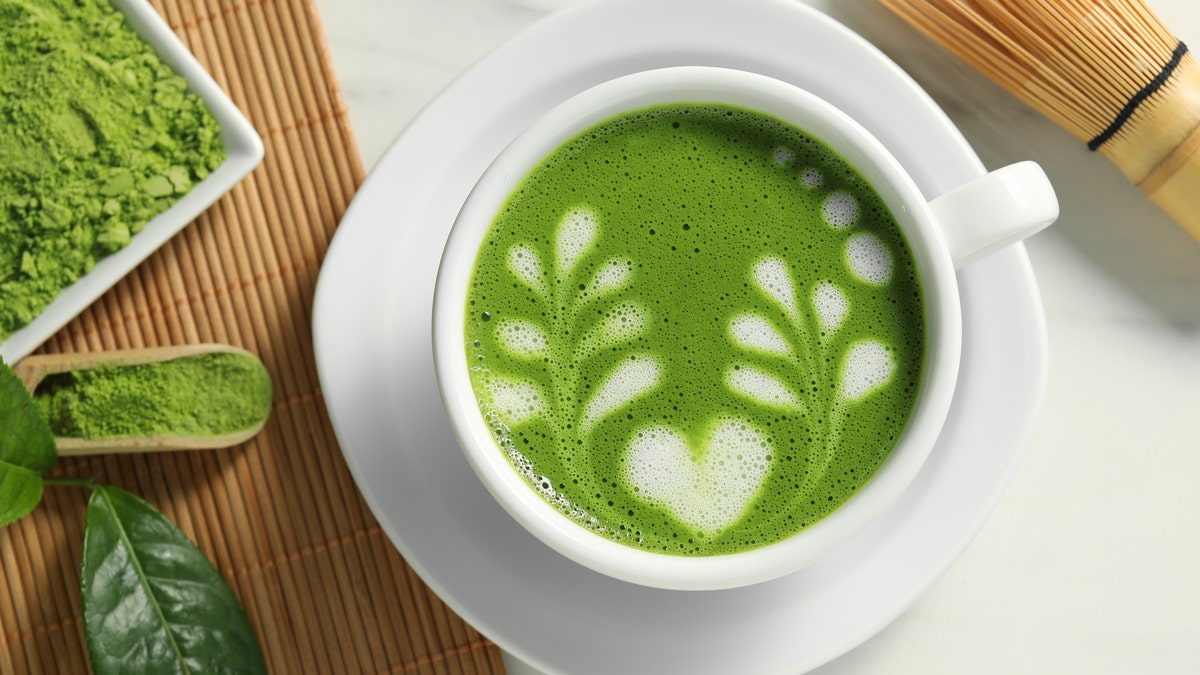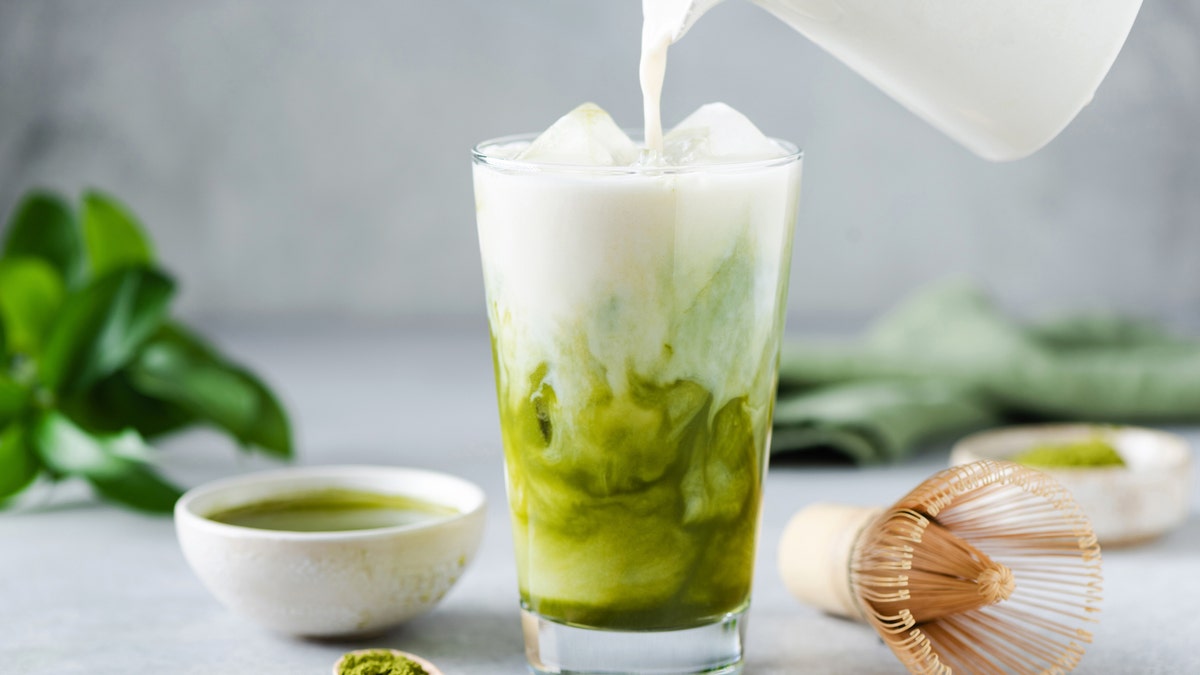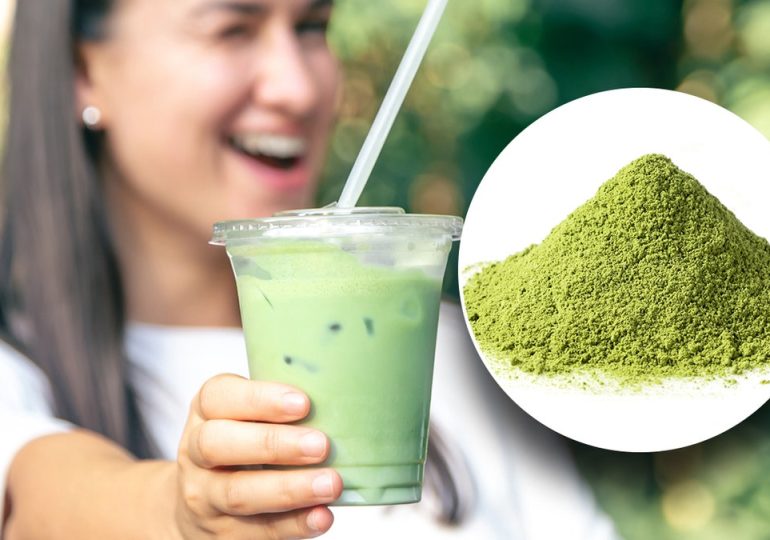When you walk into your favorite café for breakfast or to grab a morning coffee, you’ll likely spot a matcha option on the menu, too.
Matcha has origins in China and became extremely popular in Japan.
More recently, it’s become a drink of choice in many other countries, including the United States.
COFFEE VS. MATCHA TEA: WHAT DOES YOUR MORNING DRINK CHOICE SAY ABOUT YOU?
Matcha, which is green, offers consumers earthy notes in every sip. It’s a type of powered green tea made from the Camellia sinensis plant, which is similar to green tea.
What really makes matcha different is the way the plant is grown, being protected by the shade leading up to its harvesting. When the plant is harvested, its stems and veins are removed, and the entire leaf is turned into a fine powder.

Matcha is full of health benefits that make it a popular beverage to drink before a busy day. (iStock)
Matcha can be consumed in a variety of ways, most commonly in the form of a beverage. In order to make matcha tea, which can be enjoyed hot or iced, simply mix the powder into your water. You can also combine matcha powder with milk, for more of a latte-type drink.
Alternatively, you can include matcha powder in baked goods or sprinkle it over oatmeal or a healthy acai bowl.
Matcha isn’t famous for its taste alone, it’s also popular for its health benefits.

Matcha can be served hot or iced. You can buy matcha from your local café or make it yourself at home. (iStock)
Some of the health benefits, which are thought to stem from consumption, are as follows:
- Full of antioxidants
- Enhanced brain function
- Protects the liver
matcha improves brain function, as scientists have noted that the enhanced brain function could be a result of the caffeine in matcha, according to WebMD.
For more Lifestyle articles, visit www.foxnews.com/lifestyle
An average cup of matcha contains about 19 to 45 milligrams of caffeine per gram, which is about 38 to 176 milligrams of caffeine per cup on average, according to Healthline.
For comparison, a cup of coffee has about 70 to 140 milligrams per brewed cup, according to the source.

Matcha does contain caffeine, with the average cup ranging from between 38 and 176 milligrams. (iStock)
CLICK HERE TO GET THE FOX NEWS APP
In 2020, experts noted that the protective properties of matcha for the liver benefit those with nonalcoholic fatty liver disease (NAFLD), a condition where fat builds in the liver, by reducing liver enzymes, but could have the opposite impact in those without NAFLD, according to Heathline.
CLICK HERE TO SIGN UP FOR OUR LIFESTYLE NEWSLETTER
Before trying to incorporate anything new into your diet, including matcha, always start with small amounts, so you know how your body will react.









